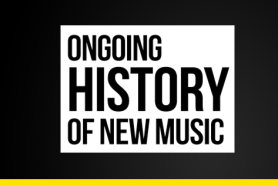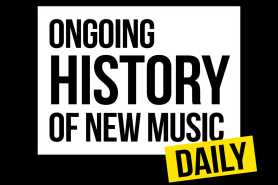Canada and the United States will begin working “quickly” on deals that will bring “greater certainty” to the steel, aluminum and energy sectors, Canada-U.S. Trade Minister Dominic LeBlanc said after Prime Minister Mark Carney met with U.S. President Donald Trump at the White House on Tuesday.
LeBlanc told reporters following the meeting that those deals will be a “first step” toward future conversations toward addressing sector-specific U.S. tariffs on other key Canadian industries including lumber and autos.
“We concluded what I think was a successful, positive, substantive conversation with President Trump on trade issues,” he said.
“In the conversation today,” LeBlanc added, which he called “more detailed” than past high-level talks, “we talked about ways to quickly arrive at a deal that will bring, we hope, better circumstance to both countries in these sectors of significant importance.”
“It concluded with the president and the prime minister directing us — me and my colleagues and the president’s cabinet secretaries that were there … to continue the conversation and to quickly land deals that will bring, we think, greater certainty in … steel, aluminum and energy.”
During the meeting with Carney in the Oval Office earlier on Tuesday, Trump was asked if Carney will leave Washington, D.C., with “a deal on tariffs.”
“I think they’re going to be very happy. We have a lot of things that we’re working on that people don’t talk about,” Trump replied.
Asked after the meeting why Canada should be “happy” with the result despite not leaving with a deal in hand, LeBlanc said conversations will continue at an accelerated pace, with more talks expected as soon as Tuesday evening.
“People understandably want to see the results, and believe me so do we,” he said. “We’re going to continue that work.”
LeBlanc said last week that Canada is focused on removing U.S. sectoral tariffs on steel, aluminum, lumber and other industries, which Trump has justified under a national security pretext known as Section 232 in U.S. trade law.
“Our job is to defend Canadian workers and Canadian businesses,” he said Tuesday. “The prime minister did that I think in a very significant way today.
“The conversation between the two leaders left us very much with the sense that there’s a desire to see how we can — starting with the steel and aluminum sectors — structure something that would be in the economic and security interests of both countries.”
This was the second meeting between the two leaders in the Oval Office since Trump launched a trade war against Canada.
Trump said Canada and the U.S. have a “natural conflict” when it comes to questions for trade.
“We have a natural conflict. It’s a natural business conflict, nothing wrong with it. And I think we’ve come a long way over the last few months, actually, in terms of that relationship,” he said.
Speaking about the auto industry as an example, Trump added: “It’s a tough situation because we want to make our cars here. At the same time, we want Canada to do well making cars. So we’re working on formulas, and I think we’ll get there.”
LeBlanc said later he wouldn’t equate Trump’s talk of “formulas” with the possibility of a quota system for exports — which is included in the supply management system for Canada’s dairy industry — for autos and other strategic sectors.
Carney said that while the two countries compete on several points, there was room for collaboration in a trade deal.
“There are areas where we compete and it’s in those areas where we have to come to an agreement that works but there are more areas where we are stronger together. That’s what we’re focused on. We’re going to get the right deal right deal for America and the right deal, obviously from my perspective, for Canada,” Carney said.
“I think the people of Canada, they will love us again,” Trump said.
He added that Carney was a “great prime minister.”
“He is a world-class leader. He’s a man that knows what he wants, and I’m not surprised to see that he won the election and won it substantially. I would think he’s more popular now,” Trump said.
When asked why there was a delay in signing a trade deal if Carney was a “great man,” Trump said, “Because I want to be a great man too.”
Trump said the fentanyl crisis at the Canada-U.S. border, which he cited as the original justification for imposing broad-based tariffs on Canada and Mexico in February, was improving.
“Canada’s worked hard (on controlling fentanyl), and they’ve done a much better,” Trump said.
However, a presidential memo he wrote last month said Canada needed to do more.
“In Canada, Prime Minister Mark Carney responded by appointing a fentanyl czar and proposing legislation to increase the inspection powers of law enforcement, but more action is needed to stop fentanyl and other drugs from crossing our border and to arrest drug criminals exploiting Canadian territory,” the memo stated.
U.S. data shows a relatively tiny amount of fentanyl is seized at the Canada-U.S. border, amounting to less than one per cent of all fentanyl intercepted by American authorities.
After the Oval Office meeting, Carney attended an official working luncheon hosted by Trump.
Carney’s visit comes amid growing pressure to negotiate a new trade deal and get tariffs dropped from Canada’s largest trading partner.
Conservative Leader Pierre Poilievre on Monday shared a letter he wrote to Carney, urging him to “negotiate a win” for Canada.
Carney’s office said Canada has the best deal of any of the U.S.’s trade partners.
“Canada has the lowest average tariff rate of any American trading partner, with 85% of Canada’s trade with the U.S. being tariff-free,” Carney’s office said in a statement.
Before leaving for Washington, Carney met with Alberta Premier Danielle Smith in Ottawa.
Smith wished Carney well during public remarks ahead of their meeting and said she’d “love to see a renegotiated Canada-U.S. free trade agreement sooner rather than later.”
Last month, both Canada and the U.S. announced separately that they are launching a public consultation ahead of the upcoming review of the Canada-U.S.-Mexico trade agreement (CUSMA).
The U.S. Trade Representative has launched 45 days of public consultations ahead of the review, set to take place next year, with a public hearing scheduled for November.
© 2025 Global News, a division of Corus Entertainment Inc.






 Ad Choices
Ad Choices